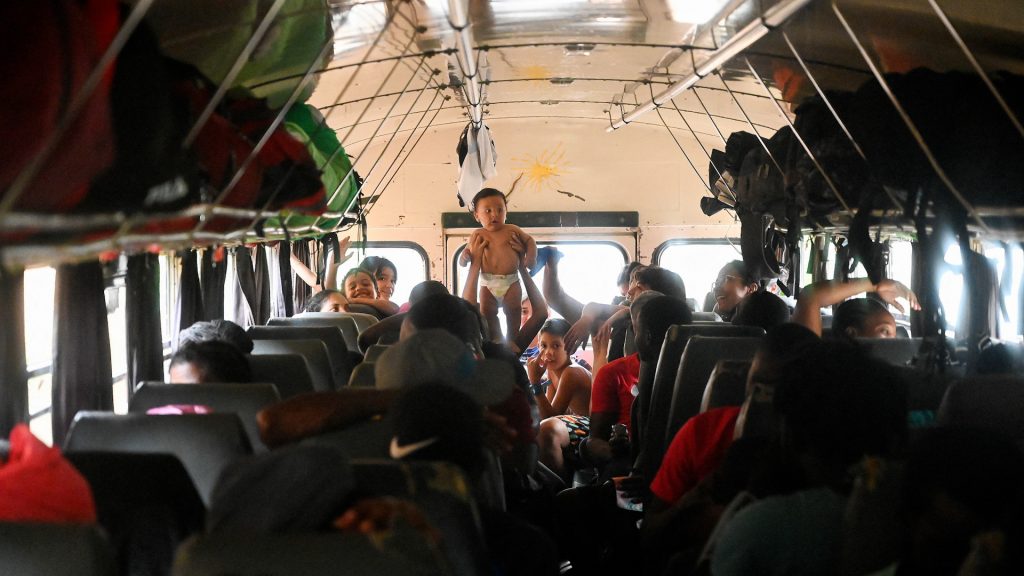Federal judge rules Trump can’t revoke legal status of certain migrants
Ella Greene April 15, 2025 0
- A federal judge blocked the Trump administration from canceling legal protections for migrants who entered through the Cuba, Haiti, Nicaragua and Venezuela (CHNV) parole program. The decision paused removal efforts against over 500,000 people from Cuba, Haiti, Nicaragua and Venezuela and required DHS to assess each case individually.
- The court cited due process concerns, warning that mass deportations would cause harm and deny migrants a fair chance to challenge removal.
- DHS has not announced whether it will appeal, leaving CHNV recipients temporarily protected as legal challenges continue.
Full Story
More than 500,000 migrants from Cuba, Haiti, Nicaragua and Venezuela entered the U.S. under a Biden-era immigration program known as CHNV. The initiative allowed them to fly directly to the U.S. with the support of a financial sponsor, bypassing the southern border.
Upon arrival, the Department of Homeland Security granted them immigration parole and temporary work authorization for two years, provided they passed health and background checks.
Why did the Trump administration attempt to end the program?
Since returning to the White House in January, President Donald Trump has sought to dismantle immigration policies based on parole authority. Officials argued the program overstepped legal limits by admitting many migrants without sufficient case-by-case scrutiny.
In March, DHS began issuing notices directing CHNV migrants to voluntarily leave the country by April 24 or face arrest and removal by federal agents.
How did the court respond to the administration’s order?
On Monday, April 14, U.S. District Judge Indira Talwani issued a ruling blocking the Trump administration from revoking the parole and work permits of CHNV migrants. The ruling bars DHS from carrying out deportation threats and mandates individualized evaluations for any change in status.
Talwani said broad parole cancellations, without individual review, violate due process and weaken legal protections.
What did the judge cite in her ruling?
Talwani’s 41-page opinion cited the risk of family separation and personal danger if migrants returned to their home countries. She noted that some plaintiffs could lose opportunities to challenge their removals if forced to leave before the court fully considers their claims.
Her decision temporarily preserves the legal status of CHNV migrants and halts DHS’s enforcement plan set for April 24.
What are the political and legal implications of the ruling?
The court decision marks a legal setback for the Trump administration’s efforts to end Biden-era immigration programs. It follows a separate ruling in March from a federal judge in California that blocked the administration from ending Temporary Protected Status protections for more than 350,000 Venezuelans.
While Trump officials have framed parole-based programs as executive overreach, courts have emphasized the need for individualized assessments before revoking protections.
What happens next for CHNV migrants?
The ruling allows CHNV beneficiaries to remain in the U.S. while litigation continues. DHS has not said whether it will appeal.
Migrants who arrived through the program cannot renew their parole beyond the original two-year window, but they may pursue other legal avenues, such as asylum or adjustment of status, to remain in the country. Advocacy groups, including the Justice Action Center, welcomed the ruling as a reprieve for affected families and their U.S. sponsors.
Ella Rae Greene, Editor In Chief
Ella Greene
Ella and the staff at Clear Media Project (CMP) curate these articles.
Unless otherwise noted CMP does not write these articles.
The views, thoughts, and opinions expressed in the articles published on this blog belong solely to the original authors and do not necessarily reflect the views of the blog owner. The blog owner does not claim ownership of the content shared by contributors and is not responsible for any inaccuracies, errors, or omissions.
All rights and credits goes to its rightful owners. No Copyright Infringement is intended. If you believe any content infringes on your rights, please contact us for review and potential removal.





